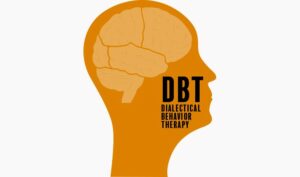Somatic therapy is a form of psychotherapy that focuses on the body. It is based on the idea that the mind and body are interconnected, and that emotional problems can be caused or exacerbated by physical problems. In somatic therapy, the therapist works with the client to identify and address any physical issues that may be contributing to their emotional problems. This can be a very effective way to treat emotional problems because it addresses both the mind and the body.
Contents
What Is Somatic Therapy?
 Somatic therapy is a type of psychotherapy that blends talk therapy with physical movement and body awareness.
Somatic therapy is a type of psychotherapy that blends talk therapy with physical movement and body awareness.
Clients may be asked to use their own body movements or they can be guided by the therapist, following nonverbal direction.
This kind of therapy is based on the idea that our minds and bodies are connected, so an issue in one area can have an impact on the other. This type of therapy is typically used to treat people with a wide range of mental health conditions, such as anxiety and depression.
It may also be helpful for those suffering from physical pain due to illness or injury.
Somatic therapy can help clients learn how their body reacts in certain situations and then use this knowledge to develop coping skills that allow them to better manage difficult emotions.
Types of Somatic Therapy

There are many different types of somatic therapy. Some of these are:
Yoga
Sometimes people refer to all forms of yoga as “somatic.” While different styles of yoga can have a somatic focus, not all types of yoga are somatic. Sometimes yoga is used as a way to increase flexibility or improve strength, rather than to focus on the body’s felt experience. It always depends on the specific teacher, though. So if this is something you’re interested in trying out, make sure to ask about their teachings before signing up for a class.
Body Talk
Another possible type of somatic therapy is body talk. This approach involves communicating with the body through dialogue, or “talking” to it. The idea behind this type of therapy is that our bodies store memories and emotions, which can affect our health. By speaking to the body in a compassionate way, we may be able to release some of these negative emotions and improve our health.
Feldenkrais Method
The Feldenkrais Method is another form of somatic therapy that focuses on movement. This method uses gentle touch and movement exercises to help people become more aware of their bodies and how they move. Through this increased awareness, people may be able to make changes in their movements that can lead to improved health and wellbeing.
Meditation
 Meditation is one of the oldest and most well-known forms of somatic therapy. This approach involves focusing on the breath and the body’s sensations, without judgment. By doing this, people may be able to connect with their bodies more deeply and experience a sense of calmness and peace. It also provides an opportunity to become more aware of negative emotions and the body’s reactions to these feelings.
Meditation is one of the oldest and most well-known forms of somatic therapy. This approach involves focusing on the breath and the body’s sensations, without judgment. By doing this, people may be able to connect with their bodies more deeply and experience a sense of calmness and peace. It also provides an opportunity to become more aware of negative emotions and the body’s reactions to these feelings.
Breathwork
Breathwork is another somatic therapy that involves focusing on one’s breath, though it can also extend into other aspects of the body. It combines deep breathing with intentional movement to help people connect better with their bodies and release tension or stress. By bringing awareness to our bodily sensations, we may be able to treat symptoms of pain or illness in a natural way without using medications.
Dance Therapy/Movement Therapy
Dance therapy (also known as dance movement therapy) is similar in some ways to breathwork and Feldenkrais Method; however, it focuses less on specific movements for health benefits and more on creative expression. In dance therapy, people are encouraged to move their bodies freely without judgment or inhibition and use movement as a way to express how they’re feeling.
Massage
 Sometimes people use the term “somatic therapy” to refer specifically to massage. Massage is a type of touch therapy in which the therapist uses their hands to manipulate the muscles and connective tissues in the body. This can help to relieve tension, pain, and stress, as well as improve circulation and joint mobility. It also makes people feel good by providing a sense of nurturing and care through touch.
Sometimes people use the term “somatic therapy” to refer specifically to massage. Massage is a type of touch therapy in which the therapist uses their hands to manipulate the muscles and connective tissues in the body. This can help to relieve tension, pain, and stress, as well as improve circulation and joint mobility. It also makes people feel good by providing a sense of nurturing and care through touch.
Visualization
Visualization is a type of somatic therapy that involves using your imagination to create mental images in the mind. It can be used as a way to heal physical or emotional pain by imagining yourself in a peaceful, serene setting and allowing this visualization to calm you down. It also helps people connect with their bodies since you must be able to visualize your body in order to use this technique.
Breathe Work
 Sometimes there are certain times when breathing isn’t easy. Maybe you have a cold and your nose is stuffed up or maybe you’ve been crying so hard that it’s making it difficult to breathe deeply. In these situations, learning how to take deep breaths can be really helpful!
Sometimes there are certain times when breathing isn’t easy. Maybe you have a cold and your nose is stuffed up or maybe you’ve been crying so hard that it’s making it difficult to breathe deeply. In these situations, learning how to take deep breaths can be really helpful!
Biofeedback
Biofeedback is also known as “bio” which means life and feedback refers to information about something such as temperature or heart rate. The purpose of biofeedback therapy is for people who want more control over their bodies by using signals from sensors placed on the skin like an electroencephalogram (EEG) sensor which measures brain wave activity through electrodes attached at various points on the scalp; another example would be electromyography (EMG) which measures muscle activity through electrodes placed near muscles being monitored for tension changes.
When Is Somatic Therapy Used?

There are many times when somatic therapy can be used. It can help with:
Anxiety
Sometimes patients can experience anxiety that is so severe it interferes with their day-to-day activities and quality of life. Somatic therapy can help patients calm down and feel back in control. It can also help patients gain insight into the underlying causes of their anxiety, which can be helpful over time.
Depression
Somatic therapy helps people with depression feel safe and comfortable in their own skin again. It gives them a chance to express what they’re feeling without judgment so that they may heal from those feelings. This can improve mental health significantly and lead to long-lasting results for some people.
Trauma
This type of therapy is useful for helping people who have experienced trauma such as abuse or neglect recover from it in a healthy way by allowing them to release pent-up emotions surrounding the trauma(s) they have endured. Sometimes it is also used to help people reduce the intensity of flashbacks and nightmares that are associated with trauma.
PTSD
This type of therapy can be helpful in managing symptoms of PTSD, like hypervigilance, strong emotions related to a traumatic event, and insomnia. It can also help patients integrate their memories so they feel less isolated from others due to their past experiences. It can also help reduce avoidance behaviors that are common in people with PTSD.
Body Image Issues
Somatic therapy can help people who struggle with body image issues to become more accepting of themselves and their bodies. It allows them to connect with their emotions and physical sensations in a safe, supportive environment so they can start to accept themselves as they are. This can be incredibly freeing for some people and lead to healthier relationships with food and exercise.
Eating Disorders
People who suffer from eating disorders like anorexia nervosa or bulimia nervosa may find somatic therapy helpful in recovering from their disorder. This type of therapy helps patients learn how to listen to their own bodies instead of relying on disordered thoughts and behaviors to dictate what they eat and when they eat it. It also allows them to connect with their emotions so that they can start healing from the root cause of their eating disorder, which often starts in childhood trauma or neglect.
Substance Abuse
When substance abusers understand what’s causing them anxiety or depression through somatic therapy sessions, they may find it easier not to turn to drugs or alcohol as a way of coping with those feelings because they have learned healthier ways of dealing with stressors in life instead. Somatic therapies have been shown to work well when paired with other addiction treatments as well.
Working of Somatic Therapy

The working of somatic therapy is based on the principle that the body holds memories and experiences. The therapist works with the client to access these memories and help them release them. One can do this through various techniques such as massage, movement, or breathwork.
Sometimes there is a lot of emotional pain and trauma stored in the body. This can be because of difficult experiences or events that have happened in the past. Somatic therapy can help to release these memories and emotions, which can then help to improve the client’s mental and physical health.
It also helps the client to become more aware of their body and what is happening in it. This increased awareness can then help them to better manage any physical or emotional issues that they are experiencing. Somatic therapy also teaches clients how to listen to their own bodies and respond in a more healthy way.
It may be a good choice for you if you are looking for a more holistic approach to therapy. Or if you have difficulty talking about your feelings or experiences, somatic therapy may be a better option for you.
Benefits of Somatic Therapy

There are many benefits of somatic therapy, but the most important thing is that it helps you take control of your life. Some of these are:
Helps To Better Understanding
Sometimes these problems may be difficult to understand. This is because the mind can not handle them and thus will try to avoid dealing with them at all costs. Somatic therapy helps to change all this by making the person understand their body and mind connection. It also helps to develop a better understanding of what is happening in the here and now.
Leads To Greater Emotional Stability
When a person undergoes somatic therapy, they tend to experience increased emotional stability. This is because they are now more in control of their life and what is happening around them. They no longer feel like a victim, but rather someone who can take charge and do something about the situation.
Enhances Physical Health
Somatic therapy also enhances physical health by improving circulation, posture, breathing, and many other things. This is because when the body is working better physically, it helps to improve all aspects of life. Sometimes there can be physical problems that are directly related to emotional issues. When these are addressed, the person can experience great relief and improved health.
Creates Feeling Of Safety
One of the most important benefits of somatic therapy is that it creates a feeling of safety. This means that you no longer have to feel afraid or ashamed of your body. You will now be able to understand and deal with any physical or emotional issues in a safe and healthy manner. It also helps to reduce stress and other negative emotions.
Improves Body Awareness
It also improves the awareness of your body. This means that you will become more aware of any changes in the way it feels, looks, moves, and reacts. The therapist will help you learn about how these things affect you emotionally, physically, and mentally so that you can understand them better. They may even teach you techniques on how to make yourself feel better in certain situations.
Reduces Anxiety And Depression
 Somatic therapy helps to reduce anxiety and depression as well as improve moods by helping people who have problems with their bodies or minds be able to cope with what is going on around them. When they are able to identify where they need help and do something about it immediately, they will feel better and be more confident in themselves.
Somatic therapy helps to reduce anxiety and depression as well as improve moods by helping people who have problems with their bodies or minds be able to cope with what is going on around them. When they are able to identify where they need help and do something about it immediately, they will feel better and be more confident in themselves.
Helps In Addiction Recovery
You can also use this type of therapy to help you deal with addiction issues such as smoking, drugs, alcohol, or food problems. It helps people identify what is causing the problem and then take action to do something about it. By learning how your body reacts to certain things around you, you will learn how to avoid them in the future and make changes that are necessary for your health in general.
Improves Self-Esteem And Confidence
 Somatic therapy is not only very effective but also very beneficial for anyone who wants to improve their self-esteem and confidence levels. You will notice a difference just by trying this method out once because it can help you become more aware of who you are and what you want in life. It makes you feel better about yourself, your body, and how others perceive you.
Somatic therapy is not only very effective but also very beneficial for anyone who wants to improve their self-esteem and confidence levels. You will notice a difference just by trying this method out once because it can help you become more aware of who you are and what you want in life. It makes you feel better about yourself, your body, and how others perceive you.
Limitations of Somatic Therapy

The limitations of somatic therapy are that it is not for everyone. It requires a strong commitment from the client and therapist to work through challenging issues, which can take time and effort.
May Not Ne Effective
Sometimes there are limitations to what somatic therapy can achieve. For example, if the source of a person’s problems is due to past traumas that have been repressed and are not consciously remembered, then somatic therapy may not be effective in resolving those issues. There are also some conditions, like mental illness, that may be better treated with medication and other forms of therapy.
May Take Time
Sometimes these treatments take a few sessions per week for four to six weeks. It may not be the best choice for people with a busy lifestyle. There are people who are not very mobile. They should go for a therapist who comes to their house. When it comes to the choice of a therapist, people should be careful. It can affect the outcome.
May Be Costly
Sometimes, it can be expensive to maintain. Sometimes this therapy also includes massage or physical therapy. The therapist may recommend that you take these as well and this can be costly for some people. It may be worth it, but make sure you know what the cost will be before you begin. It can be very helpful for some people.
Alternatives of Somatic Therapy

There are many alternatives to somatic therapy. There re:
Cognitive Behavioral Therapy
Cognitive Behavioral Therapy, or CBT, is a type of talk therapy that focuses on how your thoughts and beliefs can affect your feelings and behaviors. There are many different types of CBT, but all involve identifying and changing unhelpful thoughts and behaviors. It may be a good option for you if you want to focus on changing your thoughts and behaviors rather than exploring your feelings.
Interpersonal Psychotherapy
Interpersonal psychotherapy, or IPT, is a type of therapy that focuses on the relationships between people. It can be helpful for people who have problems with their relationships or who are feeling lonely or isolated. IPT usually involves meeting with a therapist once a week for around 16 weeks.
Dialectical Behavior Therapy
 Dialectical Behavior Therapy, or DBT, is a type of therapy that was developed specifically for people with Borderline Personality Disorder. However, it can be helpful for anyone who has trouble managing their emotions. DBT involves meeting with a therapist weekly and doing homework assignments to help you learn new skills. It also changes the way you react to situations.
Dialectical Behavior Therapy, or DBT, is a type of therapy that was developed specifically for people with Borderline Personality Disorder. However, it can be helpful for anyone who has trouble managing their emotions. DBT involves meeting with a therapist weekly and doing homework assignments to help you learn new skills. It also changes the way you react to situations.
Exposure Therapy
Exposure therapy is a type of CBT that focuses on helping people overcome anxiety disorders. It can be helpful for phobias, panic attacks, post-traumatic stress disorder (PTSD), social anxiety disorder, generalized anxiety disorder, and obsessive-compulsive disorder (OCD). The therapy involves gradually exposing yourself to what you fear so that you can eventually face it without feeling afraid.
Conclusion
Somatic therapy is one of the most effective tools for treating a variety of mental health issues. This includes anxiety and depression. It can help people cope with trauma and heal from past experiences. This therapy may not be right for everyone, but it’s worth considering if you want to try something new or different. Sometimes, it’s hard to know which type of therapy is best for you. That’s why we offer a complimentary phone consultation with one of our therapists so they can help guide you in the right direction. If somatic therapy sounds appealing, then contact us today.
A Word From Therapy Mantra
Your mental health — Your psychological, emotional, and social well-being — has an impact on every aspect of your life. Positive mental health essentially allows you to effectively deal with life’s everyday challenges.
At TherapyMantra, we have a team of therapists who provide affordable online therapy to assist you with issues such as depression, anxiety, stress, workplace Issues, addiction, relationship, OCD, LGBTQ, and PTSD. You can book a free therapy or download our free Android or iOS app.


